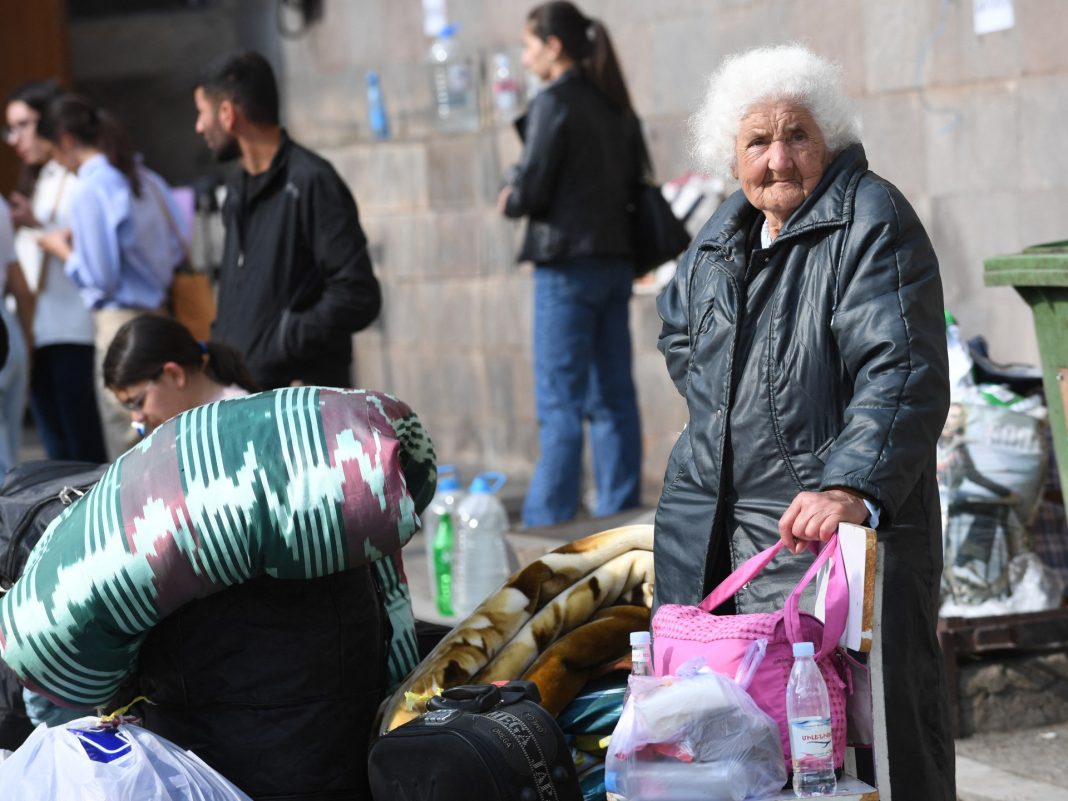Nazeli Baghdasaryan, the press secretary to Armenian Prime Minister Nikol Pashinyan, said on Saturday that 100,417 people had arrived in Armenia from Nagorno-Karabakh, which had a population of approximately 120,000 before Azerbaijan reclaimed the region in a lightning offensive last week.
A total of 21,043 vehicles have crossed the Hakari Bridge, which links Armenia to Nagorno-Karabakh, since last week, Baghdasaryan added. Some lined up for days because the winding mountain road that is the only route to Armenia became jammed.
The departure of more than 80 percent of Nagorno-Karabakh’s population raises questions about Azerbaijan’s plans for the enclave that was internationally recognised as part of its territory.
The region’s separatist ethnic Armenian government announced Thursday it would dissolve itself by the end of the year after a three-decade bid for independence.
Pashinyan has alleged the ethnic Armenian exodus amounted to “a direct act of an ethnic cleansing and depriving people of their motherland”.
Azerbaijan’s Ministry of Foreign Affairs strongly rejected the characterisation, saying the mass migration by the region’s residents was “their personal and individual decision and has nothing to do with forced relocation”.
However, Luis Moreno Ocampo, a former ICC chief prosecutor, told Al Jazeera that it is “obvious” what is happening is ethnic cleansing, saying that “the legal description is called genocide.”
“It’s an excuse that the Azerbaijan government saying, ‘oh, [leaving] was voluntary’ after they were bombing them and were starving them to death for months,” Ocampo added.
During three decades of conflict in the region, Azerbaijan and the separatists backed by Armenia have accused each other of targeted attacks, massacres and other atrocities, leaving people on both sides deeply suspicious and fearful.
While Azerbaijan has pledged to respect the rights of ethnic Armenians in Nagorno-Karabakh, most are fleeing because they do not trust Azerbaijani authorities to treat them humanely or guarantee their language, religion and culture.
The office of Italy’s prime minister announced on Saturday that Armenia has asked the European Union for assistance to help it deal with refugees arriving from Nagorno-Karabakh.
After six years of separatist fighting ended in 1994 following the collapse of the Soviet Union, Nagorno-Karabakh came under the control of ethnic Armenian forces backed by Armenia. Then, during a six-week war in 2020, Azerbaijan took back parts of the region in the South Caucasus Mountains along with surrounding territory that Armenian forces had claimed earlier.
In December, Azerbaijan blocked the Lachin Corridor, the only road connecting Nagorno-Karabakh with Armenia, accusing the Armenian government of using it for illicit weapons shipments to the region’s separatist forces.
Weakened by the blockade and with Armenia’s leadership distancing itself from the conflict, ethnic Armenian forces in the region agreed to lay down arms less than 24 hours after Azerbaijan began its offensive. Talks have begun between officials in the Azerbaijani capital of Baku and Nagorno-Karabakh’s separatist authorities on “reintegrating” the region into Azerbaijan.
